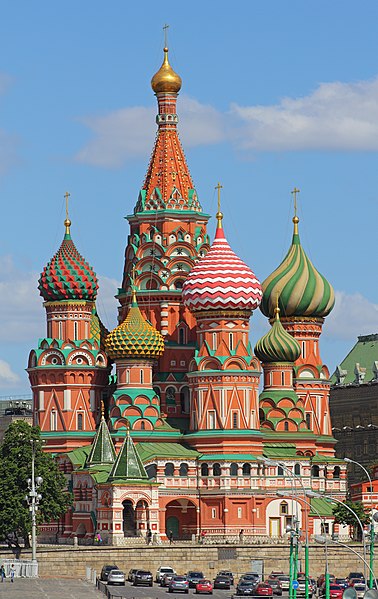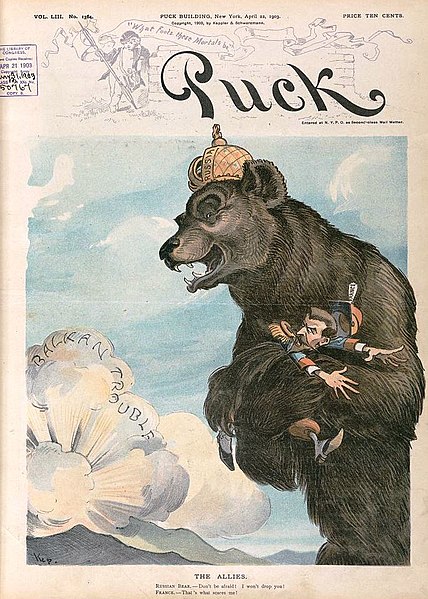Russophilia is admiration and fondness of Russia, Russian history, and Russian culture. The antonym is Russophobia. In the 19th century, Russophilia was often linked to variants of pan-Slavism, since the Russian Empire and autonomous Serbia were the only two Slavic sovereign states during and after the Springtime of Nations.
Saint Basil's Cathedral on the Red Square in Moscow
Chinese president Xi Jinping with Russian president Vladimir Putin at the 2015 Moscow Victory Day Parade.
Russian Center of Science and Culture (Belgrade)
Dmitry Medvedev in National Assembly of Serbia
Anti-Russian sentiment or Russophobia, is dislike or fear or hatred of Russia, Russian people, Russian culture, or Russian policy. The Collins English Dictionary defines it as intense and often irrational hatred of Russia. The opposite of Russophobia is Russophilia.
A 1903 Puck llustration depicting a large bear wearing a crown labeled "Russia" clutching a diminutive Émile Loubet labeled "France" as an explosion sends clouds of smoke labeled "Balkan Trouble" billowing skyward
Nazi propaganda minister Joseph Goebbels, in Das Reich, explained Russian resistance in terms of a stubborn but bestial soul, while Russians were termed "Asiatic".
Xenophobic graffiti inscriptions "Lenin was a Zhyd" (Jew) and "Death to Moskals" (Russians). Lviv, 2008
A caricature of a Russian traditional matryoshka doll as a negative symbol of communism; Prague, Czech Republic.








